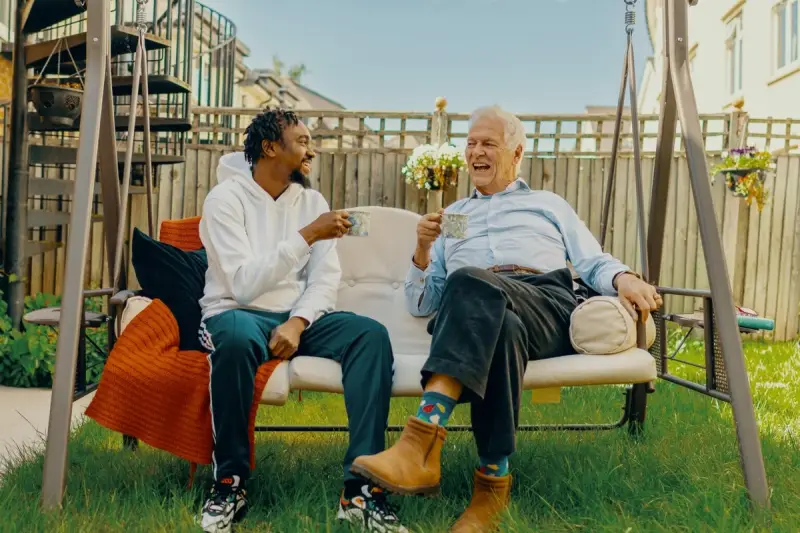
More Value
On average, services facilitated by Elder are 35% cheaper than traditional alternatives.
More control
Whenever and however you need it, you set the scope of your service.
More choice
Pick your favourite self-employed carer from personalised matches.
More support
Use our platform to plan and manage care from anywhere, and chat to 5* rated support teams.

We understand every care story is personal, because ours is no different.
Our founder Pete’s family had a tough time finding the right care for his Gran, Frances. When Frances needed a little extra help, they began looking after her themselves.
Arranging for carers to pop in and out during the day wasn’t easy, and it was difficult to know when or how long they spent time with Frances. Finally, Pete’s family decided the only way to keep Frances safe and ensure she got the care she needed was to move her into a care home.
Pete was struck by how, at the time, they felt there was no other option. So he decided to do something about it. 10 years later, Elder has delivered 15 million hours of care for families.
For over 200 years, the care home has become an accepted practice when a loved one needs a certain level of care, and he wanted to know why.
Around 6.5 million people are looking after a loved one themselves – putting a considerable amount of emotional and financial pressure on families all over the UK.
Over 2.6 million people believe they will have to quit their jobs to provide care to a loved one. But what happens when people can’t leave their jobs? If marriages break up, or families need to move away?
Looking deeper into the social care industry, Pete saw the size of the problem ahead. The number of people aged 85+ in the UK will double in the next 20 years. However, the number of care homes isn’t increasing.
How will we then ensure our loved ones not only get the support they need but get the care that keeps them happy and connected to the lives they’ve built?
Our parents and grandparents spend years creating homes that become the heart of the family. A place everyone comes back to for Christmas and holidays. For Pete, he believed there had to be a way that older people could hold on to this and stay in their own homes for as long as they wanted.
Elder was created to provide live-in care that protects these connections. By matching carers on their personality, interests, and skills, older people can enjoy companionship while keeping the routines, hobbies, and lives they love.
Whether it’s going to the local bowls club (something Frances used to do quite regularly), popping to the hairdressers for a blow dry, going to church, or simply spending time with friends who live nearby, Elder can help people enjoy life to the fullest extent they can as they age.
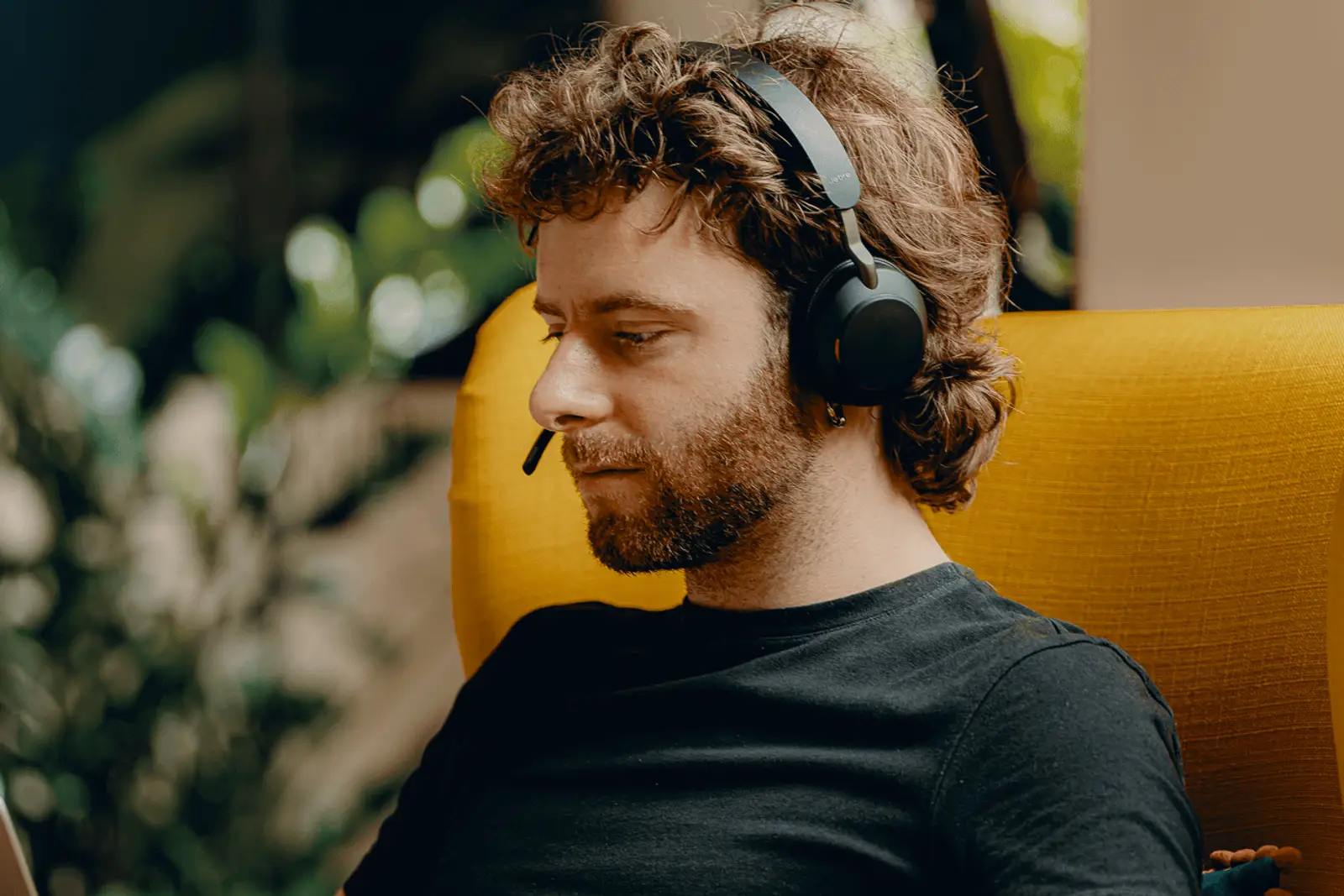
Our care advisors are here for you 365 days a year
Big care decisions need bespoke support. So, whether you’re ready to take the next step in finding a self-employed carer, or are just looking to learn more, give our friendly team a call.
Call us on: 0330 057 6496
Our core values
Our values are more than words on a page – they’re behaviours we live every day, because actions always speak the loudest.
Seeking excellence
We raise the bar, break the mould, and commit to solving complex problems for customers and carers.
Together
We’re powered by insight, ambition and purpose. We work together at pace, and ensure everyone has a voice.
For our society
We value those who care, and we’re working to change society for the better.
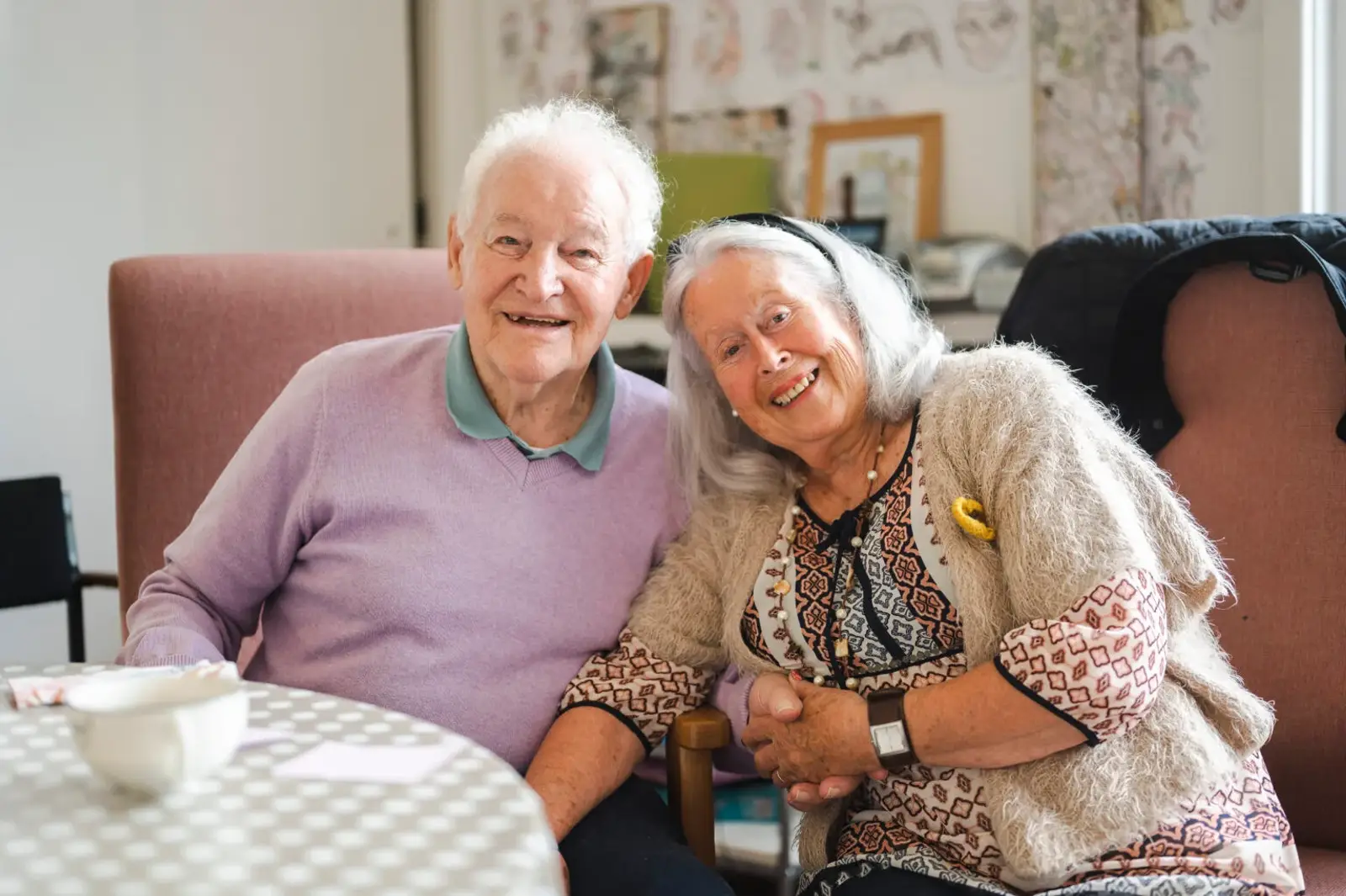
Keeping you in control
When you choose to find a self-employed carer through Elder, we’ll make sure you feel in control and fully supported, no matter what challenges you’re facing.

The right expertise at the right time
Accepting the help of a live-in carer can be tough, and everyone processes it differently. Our 5* rated care advisors are here seven days a week to answer your questions about Elder’s services and share guidance on a wide range of care topics.
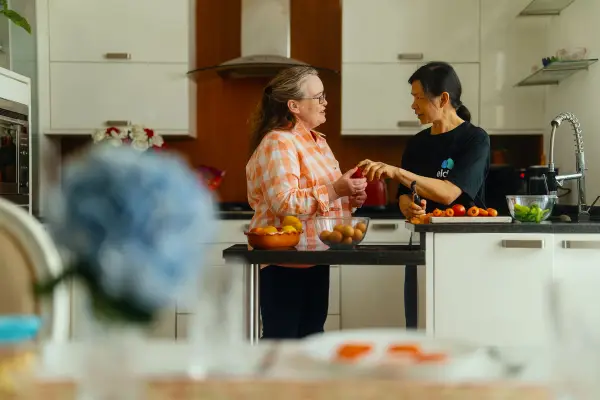
You know best
When it comes to the kind of care you need, you should be free to make decisions that are best for your family. With Elder we’ll give you the tools and support to make arranging and managing care easier, but the care agreement will stay between you and your self-employed carer.
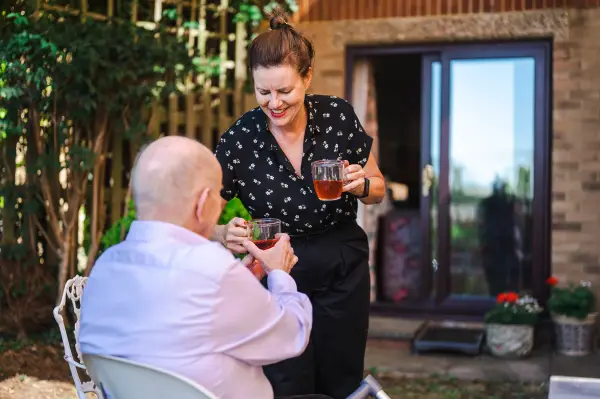
Matching you to the right self-employed carer
Our technology looks at over 25 skill and personality factors to uniquely match you with suitable self-employed carers. You can view each carer’s detailed profile and chat to them directly. And, because we know care decisions are often a family affair, our platform allows you to collaborate and work together.

Find your ideal carer
We have connected over 5000 families to carers so far.
More about Elder
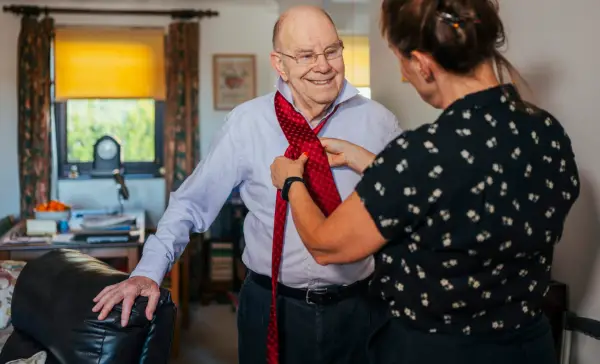
Meet the carers
Live-in carers are ordinary people doing a truly extraordinary job. Watch the video Read their stories Trustpilot People who love what they
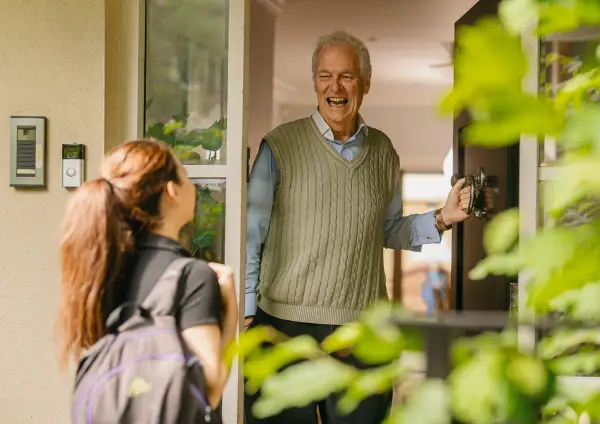
How arranging Live-in Care works?
How Elder works Looking to arrange live in care or visiting care? From searching for a self-employed carer, to managing everything with your MyElder account,

Our awards and features
We’re really proud of our achievements – they remind us that the work we do everyday is helping to change
FAQ's
Still have questions?
0333 920 3648Live-in care with Elder starts from £1,150.00 per week. The exact cost will depend on your loved one’s specific care needs. To get a personalised quote for live-in care, call our care advisors.
A wide range of tasks are included to support your loved one's wellbeing and daily routine. These tasks cover:
- Personal support: Assistance with bathing, dressing, grooming, and continence care.
- Health management: Support with medication prompting and administration, along with mobility assistance.
- Home management: Planning and preparing meals, light housework, and caring for pets.
- Social engagement: Providing companionship, encouraging hobbies, managing errands, and accompanying to appointments and social outings.
It’s important to know that our carers are not equipped to perform complex medical procedures like Stoma care, PEG care, or wound care, as these require a registered nurse.
Yes, absolutely! Live-in care is a quality and often cheaper alternative to a care home. Residential care frequently involves extra fees beyond the headline price, and can become especially costly for couples who typically need to pay for two separate rooms.
Your loved one remains in their familiar home, preserving their routine and freedom. With dedicated one-to-one support, they gain better value and greater peace of mind compared to the less individualised approach of residential care.
Thanks to Elder's nationwide network of self-employed carers, care can often be arranged within 24 hours. For urgent situations, we've even successfully matched families with a suitable carer on the very same day.
Elder provides personalised home care services, including:
- live-in care - a carer lives with the care recipient for all-day support
- respite care - a carer moves in with the care recipient for a few days, for example whilst the main caregiver is away
- visiting care - a carer comes for a few hours a day to support the recipient in their home
For more information, speak to one of our care advisors.